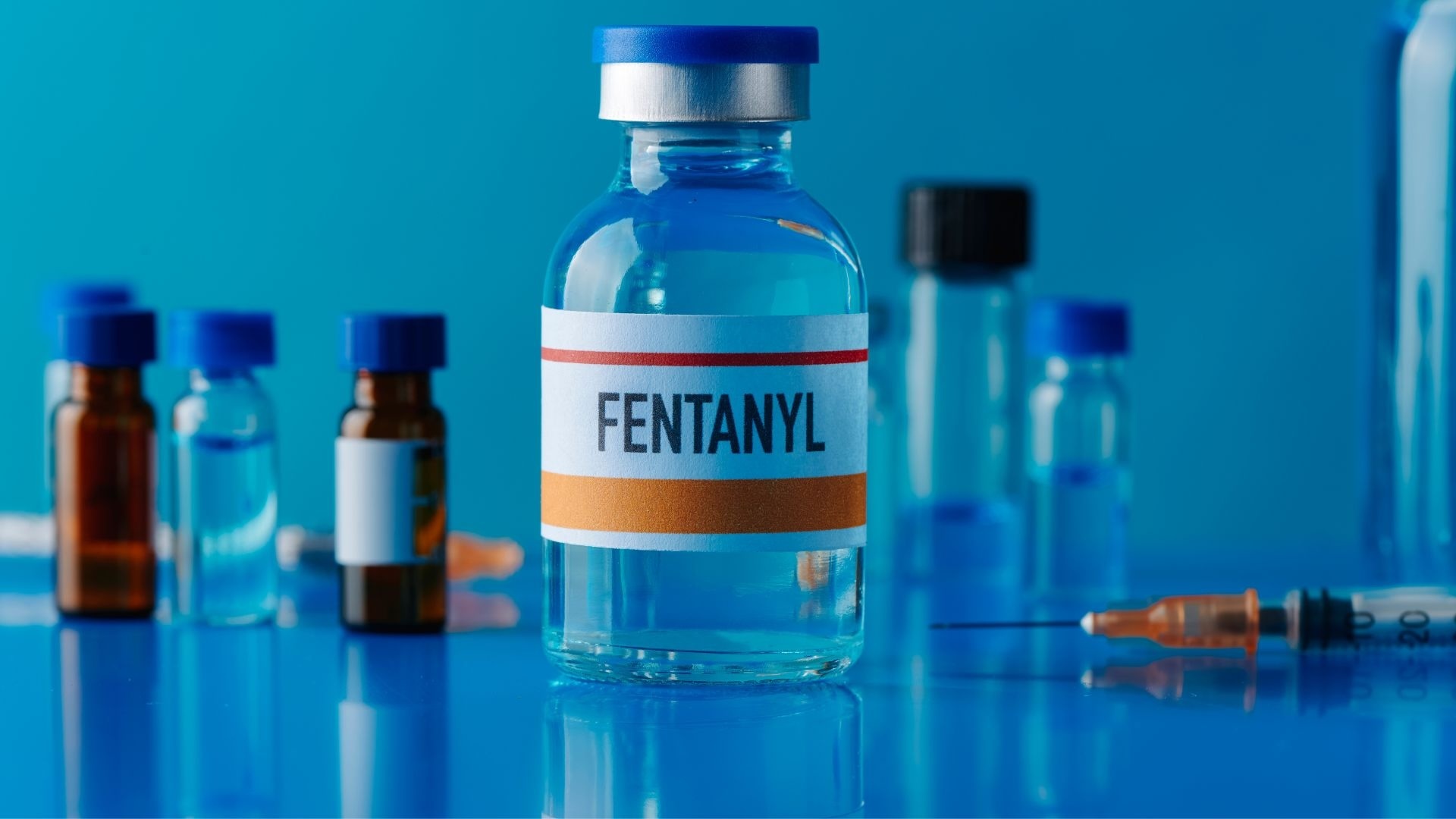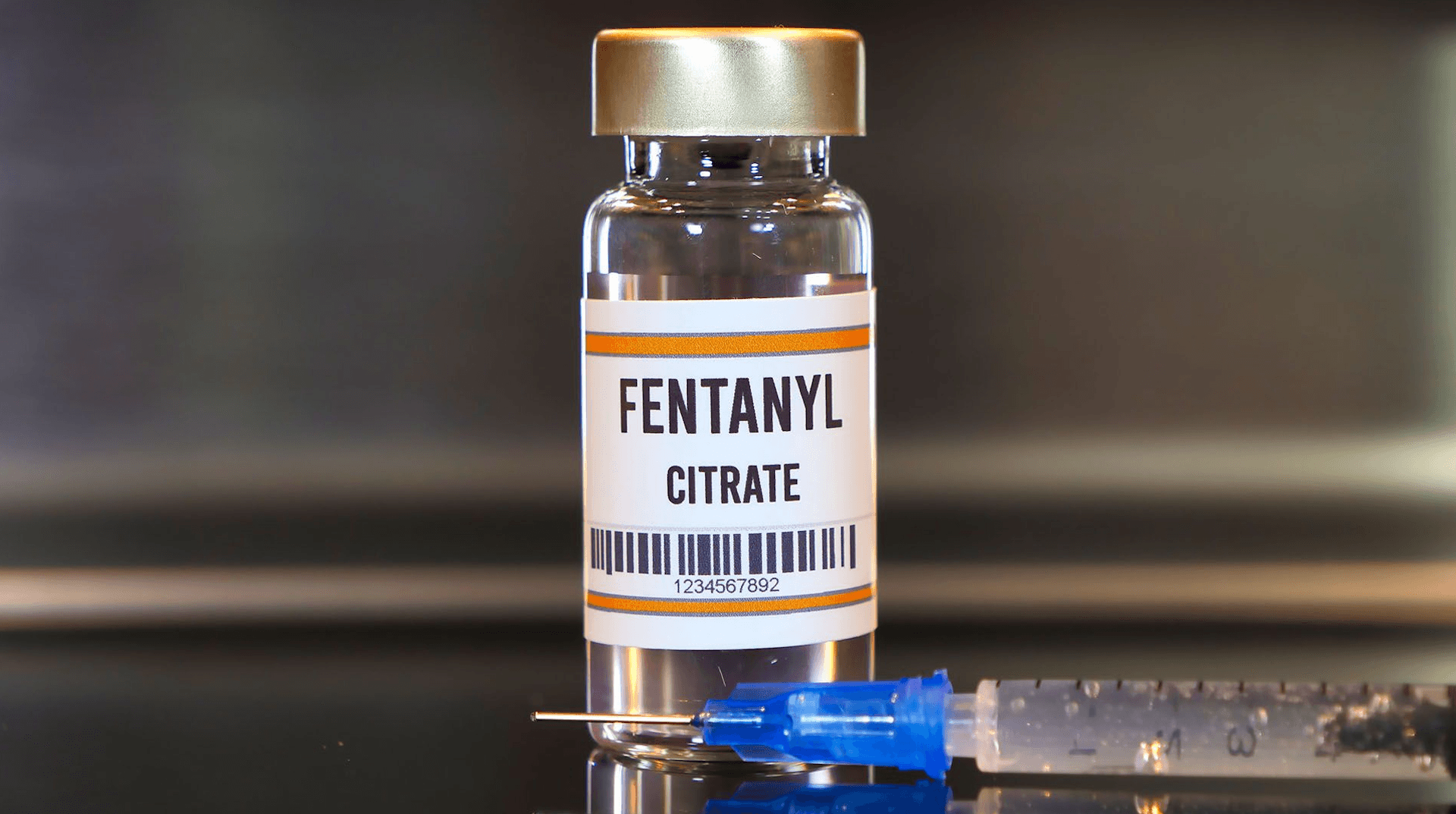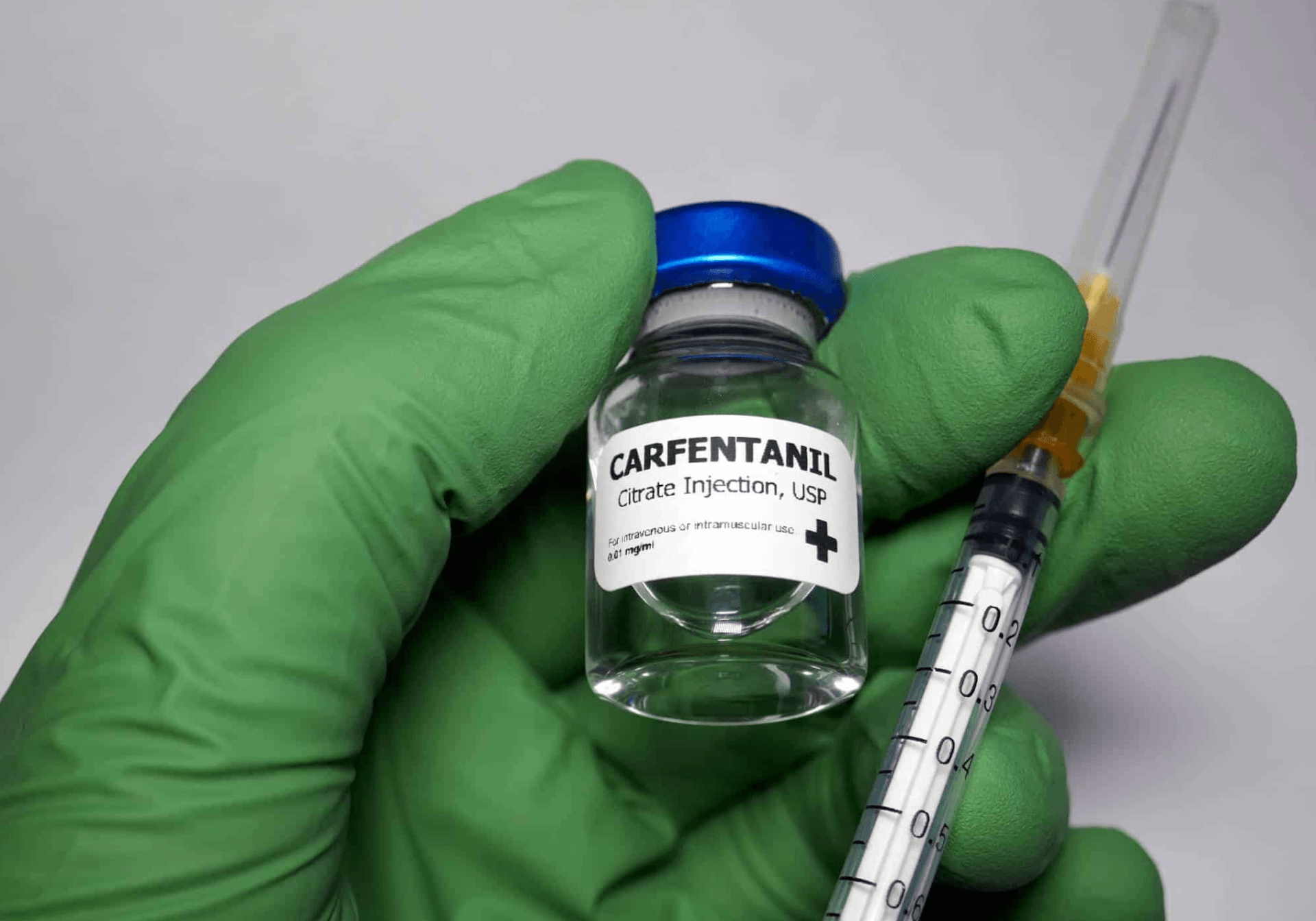Carfentanil vs Fentanyl


Learn the key Differences between Carfentanil and Fentanyl, two powerful opioids. Understand their potency, risks, and why Carfentanil is far more deadly.
Today’s drug supply is not what it used to be. Many people relapse, thinking they’re using heroin or prescription pills, but end up with fentanyl or worse: carfentanil. The difference between carfentanil and fentanyl is more than chemical; it’s a matter of life and death. Both opioids are extremely potent, but carfentanil is far deadlier, even in trace amounts.
At The Forge Recovery Center, we believe knowledge saves lives. We help individuals and families understand the hidden dangers in today’s street drugs so they can make safer choices and protect their recovery. In this article, we will explore the key differences.
What Is Fentanyl, and Why Is It So Dangerous?

Fentanyl is one of the most lethal substances in today’s illicit drug market. Originally developed for medical use, it now plays a major role in the national overdose crisis. Here’s what you need to know:
A Synthetic Opioid for Extreme Pain
Fentanyl was created to treat severe pain, especially in cancer patients or after surgery. It's a lab-made opioid, which means it doesn’t come from the poppy plant but works the same way in the brain, only faster and stronger.Up to 100 Times More Potent Than Morphine
Even tiny amounts of fentanyl can trigger a powerful effect. Just two milligrams, an amount that can fit on the tip of a pencil, can be fatal. This potency makes dosing incredibly risky when used outside medical supervision.Commonly Mixed Into Other Drugs Without Warning
Illicit fentanyl is often cut into heroin, cocaine, or fake prescription pills to make them cheaper and more addictive. Users often don’t know they’re taking fentanyl, which increases the risk of accidental overdose, especially for those without a tolerance.Extremely Addictive and Difficult to Quit
Fentanyl binds quickly and strongly to the brain’s opioid receptors, creating intense euphoria followed by rapid dependency. Many people who relapse after treatment underestimate how much their tolerance has dropped, putting them at higher risk of overdose.A Leading Cause of Overdose Deaths in the U.S.
Fentanyl is now involved in more overdose deaths than any other drug. Its widespread presence in the street supply makes it one of the most dangerous threats to anyone struggling with substance use.
What Is Carfentanil, and Why Is It Worse?

Carfentanil is one of the most dangerous substances ever introduced into the illicit drug supply. Even more potent than fentanyl, it poses a lethal risk even in microscopic amounts. Here’s why it’s considered so deadly:
An Even Stronger Synthetic Opioid
Carfentanil is a lab-made opioid that’s significantly more potent than fentanyl. It was never intended for human use and has no approved medical applications for pain relief in people.Originally Designed to Sedate Elephants
This drug was created for veterinary use only, specifically to tranquilize large animals like elephants and rhinos. The dosage required for animals is so high that even minimal human exposure can be catastrophic.Estimated to Be 100 Times Stronger Than Fentanyl
Carfentanil is believed to be about 100 times stronger than fentanyl and roughly 10,000 times stronger than morphine. It takes only a microscopic amount to cause unconsciousness, respiratory failure, or death.A Speck Can Be Fatal
Just a speck of carfentanil, smaller than a grain of salt, is enough to be deadly. Unlike other opioids, there is almost no room for error, and even accidental contact can be dangerous for first responders.Increasingly Found in the Street Drug Supply
Carfentanil is often mixed into heroin, fentanyl, and counterfeit pills. Most users are unaware they’ve ingested it, making the risk of overdose shockingly high.
Carfentanil is not just another opioid; it’s a deadly wildcard in today’s unpredictable drug landscape. At The Forge Recovery Center, we help clients understand these risks and navigate recovery with the knowledge and support they need to stay safe and secure.
Are You Struggling with Mental Health or Addiction?
We Can Help. Call Us Now!
CALL: 877-839-1772
Carfentanil vs Fentanyl: What You Need to Know
Understanding the differences between carfentanil and fentanyl could save your life. People in recovery are especially vulnerable during relapse or experimentation, when even a single dose can have fatal consequences. Here’s what you need to know:
1. Potency Makes All the Difference
Fentanyl is already dangerously powerful, but carfentanil is in another league. It’s estimated to be 100 times stronger than fentanyl and 10,000 times stronger than morphine. A dose too small to see can stop your breathing instantly.
2. Neither Drug Has Predictable Street Doses
Street drugs containing fentanyl or carfentanil are often mixed unevenly. A pill or powder might contain harmless filler or a deadly hotspot. This unpredictability makes relapse far more dangerous than it used to be.
3. Carfentanil Was Never Meant for Humans
Fentanyl was developed for medical use in hospitals, while carfentanil was designed to sedate elephants and other large animals. It is so strong that it has no approved use for human medicine.
4. Both Drugs Are Often Hidden in Other Substances
You may think you're using heroin, cocaine, or a fake prescription pill. In reality, it could be laced with fentanyl or carfentanil. Most users never know until it's too late.
5. Overdoses May Not Respond to One Dose of Narcan
Fentanyl overdoses may be reversed with one or two doses of naloxone (Narcan). Carfentanil can require multiple doses or may not respond at all, especially without fast medical help.
Factor Fentanyl Carfentanil
Human Use Approved medically Not for humans
Overdose Risk Extremely high Instant and often fatal
Potency 100x morphine 10,000x morphine
Presence in Street Drugs Widespread Growing rapidly, often hidden
Reversal 1-2 doses of Narcan may help Multiple doses may be needed
Staying informed is part of staying safe. At The Forge Recovery Center, we help clients navigate these dangers with medical support, relapse prevention, and harm-reduction strategies that work in today’s drug climate.
Why Relapse Is More Dangerous Than Ever
In early recovery, your tolerance is low, but the drugs on the street are stronger and more unpredictable than ever. That combination makes relapse far more deadly than most people realize. Here’s why:
Lower Tolerance Increases Overdose Risk
After just a few weeks without using, your body becomes more sensitive to opioids. A dose that once seemed “normal” can now overwhelm your system, especially if it contains fentanyl or carfentanil.Drug Potency Has Changed
Years ago, a person relapsing might use heroin or pills close to what they used before. Today, those drugs are often laced with powerful synthetic opioids. Even a small amount can cause respiratory failure.Carfentanil and Fentanyl Are Often Hidden
Many people who relapse believe they’re taking heroin, oxycodone, or another familiar substance. But those drugs are frequently cut with fentanyl or carfentanil, without any way to detect it. The result can be instant and fatal.One Use Can Be Enough
The most tragic part is that overdose often occurs after a single relapse attempt. People with weeks or months of sobriety try to use once and never get a second chance.Overdose Reversals Are Less Reliable
Stronger opioids make it harder to reverse an overdose. More naloxone may be needed, and in some cases, it may not work at all unless emergency medical care is available immediately.
At The Forge Recovery Center, we take relapse prevention seriously. That includes overdose education, harm-reduction planning, and teaching our clients how to stay safe because a single mistake shouldn’t be a death sentence.
Are You Struggling with Mental Health or Addiction?
We Can Help. Call Us Now!
CALL: 877-839-1772
What We Teach Clients About Staying Safe

At The Forge Recovery Center, we integrate fentanyl and carfentanil education into every part of our treatment and relapse prevention work. Staying safe isn’t just about abstinence; it’s about having the tools to make better decisions when it matters most. Here’s what we focus on:
Avoiding High-Risk Environments
We help clients identify and steer clear of people, places, and situations that increase the chances of relapse. This includes social triggers, isolation, and environments where drugs are present or normalized.Recognizing Fake Pills and Dangerous Trends
Clients learn how counterfeit pills are made to look like common prescriptions, but may contain deadly doses of fentanyl or carfentanil. We also track local trends and teach clients how to stay informed.Staying Connected to Support Systems
We emphasize the importance of ongoing connection with sober peers, sponsors, therapists, and support groups. Community is one of the strongest defenses against relapse and isolation.Planning for Crisis Moments
Together, we build realistic action plans for high-risk moments. Whether it’s a triggering event or a moment of craving, having a strategy in place can make all the difference in staying safe.Harm Reduction as a Safety Net
We teach harm reduction not as a fallback but as a protective layer. Tools like Narcan, test strips, and safe-use education can save lives while someone works toward lasting sobriety.Making Safety Part of Recovery
Our goal is to help clients make safer choices without judgment. Whether you are early in recovery or facing setbacks, your life is worth protecting every step of the way.
Conclusion: The Deadliest Drugs Are the Ones You Don’t See
Carfentanil vs fentanyl isn’t just a scientific comparison; it’s a deadly reality. One small mistake can cost a life, especially during relapse or experimentation. At The Forge Recovery Center, we understand the risks and offer compassionate, evidence-based outpatient care to help you reclaim your future.
Whether you're starting recovery or finding your way back after a setback, we’ll meet you where you are and guide you forward. Don’t leave your life up to chance. Contact us today. Stay alive. Choose recovery with the support you deserve.
Are You Struggling with Mental Health or Addiction?
We Can Help. Call Us Now!
CALL: 877-839-1772





